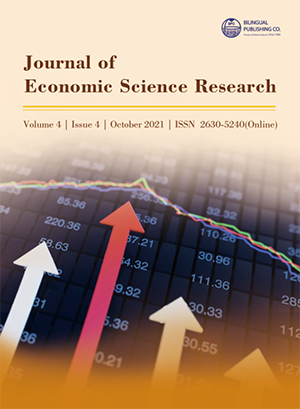Street Stall Economy in China in the COVID-19 Era: Dilemmas and the International Experience of Promoting the Normalization of Street Stall Economy
DOI:
https://doi.org/10.30564/jesr.v4i4.3634Abstract
Compared with those major policies that need to be practiced over the years, the street stall economy is more like a special means after the epidemic, resulting in a “short and brilliant” heat. Nevertheless, the street stall economy revives is facing several dilemmas. This paper reveals the dilemma of the prosperity and development of the stall economy before and after the epidemic, followed by the international experience and enlightenment of promoting the normalization of street stall economy, ranging from street vendor’s legal status and road administrative promotion to street food safety and environmental protection. To sum up, employment is the foundation of people’s livelihood and the source of wealth, hence, stall economy plays an indispensable role to create a win-win working world and promote the formation of a sustainable economic.
Keywords:
COVID-19; Street stall economy; Informal economyReferences
[1] Liao, Y. & Shi H. Traffic and sanitation problems in Dalian night market, 2020.
[2] Bell and Loukaitou-Sideris. Sidewalk informality: An examination of street vending regulation in China, 2014.
[3] Wang Yan. How does the refined management of the city tolerate the market economy——based on the empirical investigation and research of the central area of Shanghai[J]. China Development Observer, 2018(13): 47-51.
[4] China Daily. Shanghai kicks off night festival to stimulate economy, 2020.
[5] Pengcheng Shen. School of Economics, Anhui University of Finance and Economics, Anhui, 233000, China.
[6] Wang Yanwei. “Fall economy” should be developed with high quality[J]. Financial Expo (Fortune), 2020(07): 22-23.
[7] Liang Bo. The enlightenment of management methods of mobile vendors in foreign cities to my country’s related work[J]. China Price, 2009(08): 49-51.
[8] Wen Zhi. The fireworks of different countries in the “market economy”[J]. Financial Expo (Fortune), 2020(07): 82-83.
[9] Huang tingjun, Wang Shiying, Chen Ziwei, Yang XINGRAN, Liu Xin. Exploration and analysis of standardized governance model of urban stall industry in China under the background of stall economy[J]. Quality exploration, 2020,17 (04): 53-60.
[10] Lu Hongyan. Experience and Enlightenment of Urban Mobile Vendors governance at home and abroad. Journal of Tianshui School of Administration, 2016, 17 (06): 29-32.
[11] Xiong Ying, Sun Liyuan, Li Danni, Yang Wei, Shu Xiaohui. Research on the economic development of China’s land distribution and countermeasures under the new crown epidemic -- take the first and second-tier cities as an example of modern commerce, 2021 (11): 18-20.
[12] Zhou Yuxuan, Gu Yayilan, Xu Yiqing, Mo Di. Management and Enlightenment of German Mobile Traders[J]. Shanghai Business, 2021 (05): 82-83.
[13] Reid et al. A study of Chinese street vendors: How they operate, Journal of Asia-Pacific Business, 2010,11 (4): 244-257.
Downloads
Issue
Article Type
License
Copyright and Licensing
The authors shall retain the copyright of their work but allow the Publisher to publish, copy, distribute, and convey the work.
Journal of Economic Science Research publishes accepted manuscripts under Creative Commons Attribution-NonCommercial 4.0 International License (CC BY-NC 4.0). Authors who submit their papers for publication by Journal of Economic Science Research agree to have the CC BY-NC 4.0 license applied to their work, and that anyone is allowed to reuse the article or part of it free of charge for non-commercial use. As long as you follow the license terms and original source is properly cited, anyone may copy, redistribute the material in any medium or format, remix, transform, and build upon the material.
License Policy for Reuse of Third-Party Materials
If a manuscript submitted to the journal contains the materials which are held in copyright by a third-party, authors are responsible for obtaining permissions from the copyright holder to reuse or republish any previously published figures, illustrations, charts, tables, photographs, and text excerpts, etc. When submitting a manuscript, official written proof of permission must be provided and clearly stated in the cover letter.
The editorial office of the journal has the right to reject/retract articles that reuse third-party materials without permission.
Journal Policies on Data Sharing
We encourage authors to share articles published in our journal to other data platforms, but only if it is noted that it has been published in this journal.




 Weining Li
Weining Li

